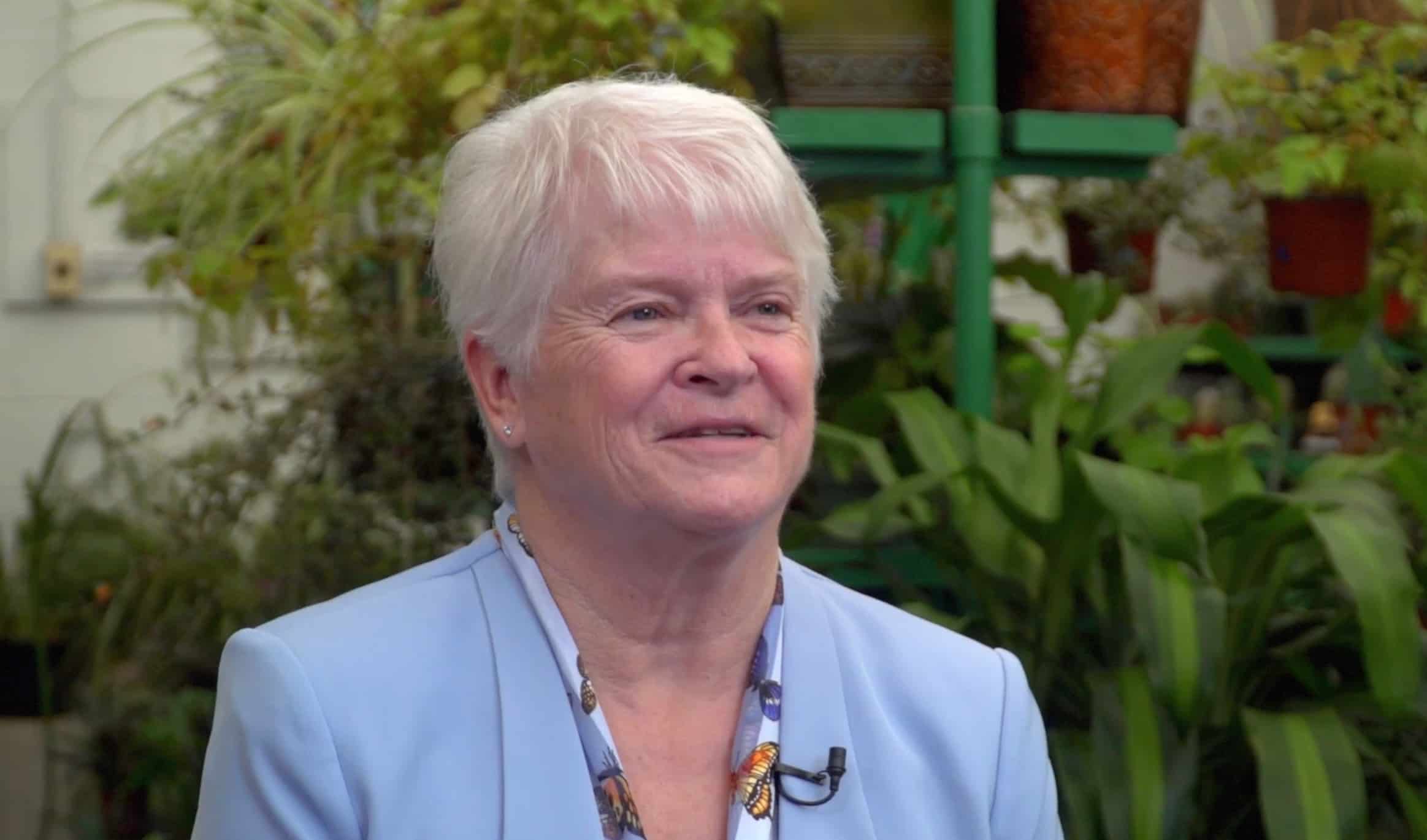Barronelle Stutzman is a florist in Richland, Washington. Rob Ingersoll had been Barronelle’s friend and a steady customer for many years. Never once had his sexual orientation been an issue in their friendship. Then same-sex marriage became legal in Washington state. Rob was planning to “marry” his partner, Curt Freed, and he asked Barronelle to arrange flowers for the ceremony.
Despite their longstanding friendship, Barronelle felt she had no choice but to decline. Because her relationship with Jesus Christ is her most precious possession, Barronelle could not dishonor Him. The Bible teaches that marriage is between one man and one woman, as well as a picture of Christ’s relationship with His church. Moreover, Jesus Himself affirmed what marriage is forthrightly and with absolute clarity.
After declining Rob’s request—albeit politely—Barronelle became the target of a lawsuit.
Alliance Defending Freedom (ADF), a legal firm that specializes in religious liberty cases, has represented both Jack Phillips, the Colorado baker whose case went all the way to the Supreme Court, and Barronelle Stutzman. ADF petitioned the court to consider Barronelle’s case along with Jack’s.
On June 25, 2018, three weeks after Jack Phillips won his case, the Supreme Court directed the Washington Supreme Court, which previously had ruled unanimously against Barronelle, to reconsider her case in light of the SCOTUS ruling in Jack’s case, Masterpiece Cakeshop v. Colorado Civil Rights Commission. In this informative video, Jenna Ellis of the James Dobson Family Institute explains what this meant.
On June 6, 2019, the Washington Supreme Court ruled against Barronelle a second time.
Alliance Defending Freedom reports,
Without even holding an oral argument, the state court came back with the same result, repeating verbatim much of what it said in its original decision rather than reconsidering the case as the U.S. Supreme Court directed.…
Washington’s highest court read the Masterpiece Cakeshop decision as narrowly as possible, saying that the U.S. Supreme Court’s condemnation of government hostility toward religion applies only to adjudicatory bodies and no other branch of government. As ADF attorneys explain, other U.S. Supreme Court decisions say the exact opposite. In fact, Stutzman’s argument that the state attorney general showed hostility toward religion is what caused the U.S. Supreme Court to send the case back in the first place.
The ruling against Barronelle again was unanimous. ADF attorneys have said they will take “immediate action to appeal with the goal of a hearing before the U.S. Supreme Court.” Listen to John Bursch, ADF Senior Counsel, explain what happened and the steps ADF now will take.
The Court Kicked the Can Down the Road
As we noted in a previous post, it’s important to understand that Jack Phillips won his case on narrow grounds. The ruling in Jack’s favor states,
The Commission’s hostility was inconsistent with the First Amendment’s guarantee that our laws be applied in a manner that is neutral toward religion. Phillips was entitled to a neutral decisionmaker who would give full and fair consideration to his religious objection as he sought to assert it in all of the circumstances in which this case was presented, considered, and decided. In this case the adjudication concerned a context that may well be different going forward in the respects noted above. However later cases raising these or similar concerns are resolved in the future, for these reasons the rulings of the Commission and of the state court that enforced the Commission’s order must be invalidated.
The outcome of cases like this in other circumstances must await further elaboration in the courts, all in the context of recognizing that these disputes must be resolved with tolerance, without undue disrespect to sincere religious beliefs, and without subjecting gay persons to indignities when they seek goods and services in an open market.
The outcome of cases like this in other circumstances must await further elaboration in the courts.
—Supreme Court Ruling in Masterpiece Cakeshop v. Colorado Civil Rights Commission, June 4, 2018—
James Esseks of the American Civil Liberties Union, which represented Charlie Craig and David Mullins—the gay couple who requested that Jack Phillips make them a wedding cake—said, “I think the bakery got a get-out-of-jail-free card because of what the court thought of as misbehavior by the Civil Rights Commission.”
Jack Phillips won, but he won on a technicality. The ruling is narrow and limited, not in terms of the number of Justices who voted for it, but in terms of its scope. Jack’s beliefs were respected in this case, but only because he was mistreated in the Colorado Civil Rights Commission’s application of the law.
Thus, the Court has not yet ruled definitively that Christian wedding vendors have a First Amendment right to follow their consciences in determining whether they will or will not be involved in same-sex wedding ceremonies.
The Washington Supreme Court Essentially Has Invited the US Supreme Court to Make that Definitive Ruling
In an article, ADF Senior Counsel John Bursch, whom we heard from above, declared,
As in Jack’s case, Barronelle has been denied equal treatment. While [Washington Attorney General Bob] Ferguson has targeted Barronelle for personal destruction—marshaling unprecedented taxpayer resources in doing so—he’s allowed overt hostility against a group of Christians on the part of a coffee shop owner (an incident caught on video) to go unanswered.
Yet, rather than addressing the religious hostility and unequal treatment, the Washington Supreme Court side-stepped the question altogether, narrowing Masterpiece in a way the U.S. Supreme Court had not.
Justice Elena Kagan recognized that the Supreme Court in Masterpiece announced that “state actors cannot show hostility to religious views; rather, they must give those views ‘neutral and respectful consideration.’”
The Washington Supreme Court limited “state actors” to include only “state judges or adjudicators,” giving a free pass to other government officials like the state attorney general.
The Masterpiece ruling and the First Amendment are clear: No state actor—whether a judge, police officer, attorney general, president, or governor—may treat one U.S. citizen worse than another because of his or her faith.
The Washington Supreme Court is forcing the U.S. Supreme Court to drive that message home yet again. And Barronelle’s case will give the high court a great opportunity to do just that.

Will you pray for Barronelle, for ADF, and for others involved in this case, including those who have gone after Barronelle with a vengeance?
And will you consider supporting ADF financially? It’s one of the best investments you can make to secure and maintain religious liberty in the United States!
Update: On July 2, 2021, the US Supreme Court issued its decision not to hear Barronelle’s case and to let the decision of the Washington State Supreme Court stand. More information is available here.
This summary copyright © 2019 by B. Nathaniel Sullivan. All rights reserved.
top image: Barronelle Stutzman from this ADF video
This page is part of a larger article.

